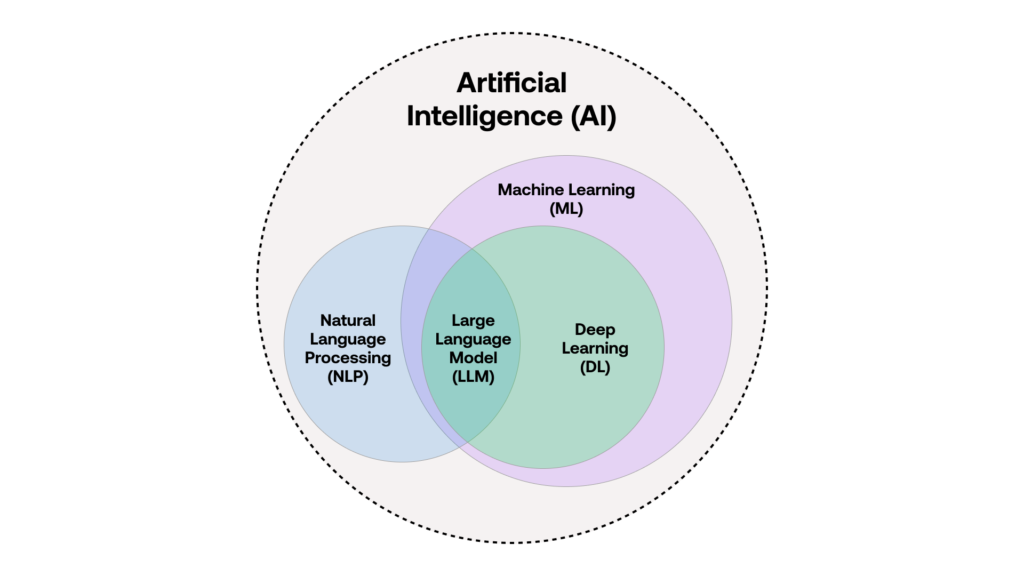
Why Choosing the Right AI Implementation Firm Is More Critical Than Ever
Artificial intelligence implementation represents the systematic process of integrating AI technologies and methodologies into an organization’s existing infrastructure and workflows. Unlike simply purchasing AI software, true implementation encompasses a holistic transformation that aligns technological capabilities with business objectives, organizational culture, and operational processes. Working with the right AI implementation firm makes it easier to bring AI into your business in a way that actually works.
At its core, AI implementation involves translating theoretical AI concepts into practical business applications that deliver measurable value. This process requires careful planning, strategic resource allocation, and often, a fundamental rethinking of how work gets done within an organization. The journey typically begins with identifying specific business challenges that AI can address, followed by data preparation, model development, integration with existing systems, and finally, deployment and continuous refinement.
The significance of effective AI implementation cannot be overstated in today’s competitive landscape. Organizations that successfully harness AI capabilities gain substantial advantages across multiple dimensions of their operations. For instance, predictive analytics can transform inventory management by anticipating demand fluctuations before they occur, while natural language processing can revolutionize customer service through intelligent chatbots that provide 24/7 support.
Beyond operational efficiencies, AI implementation enables businesses to uncover insights that would remain hidden using traditional analysis methods. Machine learning algorithms can identify subtle patterns across vast datasets, revealing customer preferences, market trends, and operational inefficiencies that human analysts might miss. These insights empower decision-makers to act with greater confidence and precision.
Perhaps most importantly, AI implementation fosters innovation by freeing human talent from repetitive tasks. When employees are liberated from mundane activities like data entry or basic customer inquiries, they can redirect their energy toward creative problem-solving and strategic initiatives that drive business growth. This human-machine collaboration represents the true promise of AI—not replacing human workers, but enhancing their capabilities and expanding their impact.
However, successful AI implementation requires more than technical expertise. It demands a clear vision, executive sponsorship, cross-functional collaboration, and a culture that embraces data-driven decision-making. Organizations must also navigate ethical considerations, ensuring their AI systems operate transparently, fairly, and in alignment with company values and regulatory requirements.
Services Offered by AI Implementation Firms

The marketplace for AI implementation has matured significantly, with specialized firms now offering comprehensive service portfolios designed to address every stage of the AI adoption journey. These services extend far beyond simply coding algorithms or deploying off-the-shelf solutions.
AI strategy development stands as a foundational service offered by leading implementation firms. This consultative approach begins with understanding an organization’s business objectives, competitive landscape, and existing technological capabilities. Expert consultants then craft tailored AI roadmaps that align technological possibilities with business priorities, establishing clear milestones, resource requirements, and expected ROI metrics. This strategic groundwork ensures that subsequent AI initiatives serve meaningful business purposes rather than pursuing technology for its own sake.
Data assessment and preparation services address one of the most critical prerequisites for AI success. Implementation firms evaluate existing data infrastructure, identify quality issues, and establish robust data governance frameworks. They help organizations consolidate disparate data sources, implement appropriate cleansing methodologies, and develop pipelines that deliver consistent, high-quality data to AI systems. Without this foundational work, even the most sophisticated AI models will struggle to deliver accurate results.
Custom AI model development represents the technical heart of implementation services. Specialized data scientists and machine learning engineers design, train, and validate algorithms tailored to specific business challenges. This process involves selecting appropriate modeling techniques, engineering relevant features, and fine-tuning parameters to optimize performance. The best implementation firms maintain expertise across multiple AI domains including computer vision, natural language processing, predictive analytics, and reinforcement learning.
Integration and deployment services bridge the gap between promising AI prototypes and production-ready systems. Implementation specialists ensure seamless connectivity with existing enterprise applications, develop appropriate APIs, establish monitoring frameworks, and architect scalable infrastructure. They also address critical non-functional requirements like security, compliance, and performance optimization. This integration expertise prevents AI initiatives from becoming isolated technology experiments.
Change management and training services recognize that successful AI implementation requires human adoption as much as technological deployment. Implementation firms help organizations communicate the value of AI initiatives, address employee concerns, develop appropriate workflows, and provide hands-on training. This cultural dimension of implementation often determines whether AI capabilities translate into actual business value.
Ongoing optimization and support services acknowledge that AI implementation is not a one-time project but a continuous journey. Leading firms provide regular model retraining, performance monitoring, and technical support to ensure AI systems maintain their effectiveness as business conditions evolve. They also help organizations scale successful pilots across the enterprise, maximizing the return on AI investments.
Industries Served by AI Implementation Firms

The transformative power of artificial intelligence extends across virtually every sector of the economy, with specialized implementation firms developing deep vertical expertise to address industry-specific challenges. This cross-industry adoption demonstrates AI’s remarkable versatility as a business enhancement tool.
Healthcare organizations have emerged as enthusiastic AI adopters, leveraging advanced algorithms to improve patient outcomes while controlling costs. Radiologists now use computer vision systems to detect subtle anomalies in medical images that might escape human notice, enabling earlier diagnosis of conditions like cancer. Predictive analytics models help hospital administrators forecast patient admissions, optimizing staffing levels and resource allocation. Meanwhile, natural language processing extracts valuable insights from unstructured clinical notes, enhancing research capabilities and treatment planning. Leading healthcare providers report diagnostic accuracy improvements of up to 30% when augmenting human expertise with AI systems.
Financial services firms deploy sophisticated AI implementations to enhance security, improve customer experiences, and streamline operations. Fraud detection algorithms analyze transaction patterns in real-time, identifying suspicious activities with remarkable precision while reducing false positives that frustrate legitimate customers. Wealth management firms employ AI advisors that develop personalized investment strategies based on individual risk profiles and financial goals. Insurance companies use computer vision to assess property damage from photographs, accelerating claims processing from days to minutes while reducing adjustment costs.
Manufacturing enterprises have revolutionized production environments through AI implementation. Predictive maintenance systems analyze sensor data from factory equipment to identify potential failures before they occur, reducing downtime by up to 50% in some facilities. Computer vision quality control systems inspect products at speeds impossible for human workers, detecting microscopic defects with consistent accuracy. Supply chain optimization algorithms dynamically adjust production schedules and inventory levels based on real-time demand signals, significantly reducing carrying costs while improving fulfillment rates.
Retail businesses leverage AI to create personalized shopping experiences while optimizing operations. Recommendation engines analyze purchase history and browsing behavior to suggest relevant products, increasing average order values by up to 35%. Inventory management systems use machine learning to forecast demand with unprecedented accuracy, reducing stockouts and markdowns. Computer vision technologies enable cashierless checkout experiences, enhancing customer convenience while reducing labor costs.
Transportation and logistics companies implement AI to enhance route optimization, fleet management, and delivery prediction. Sophisticated algorithms consider traffic patterns, weather conditions, and vehicle capabilities to determine optimal routing, reducing fuel consumption and delivery times. Predictive maintenance systems monitor vehicle health, scheduling preventive service before roadside breakdowns occur. Last-mile delivery optimization ensures packages reach customers within promised time windows, improving satisfaction while controlling costs.
Agricultural enterprises increasingly rely on AI implementation to enhance crop yields while reducing environmental impact. Computer vision systems mounted on drones or tractors identify pest infestations and nutrient deficiencies with pinpoint accuracy, enabling targeted interventions rather than blanket treatments. Predictive analytics models incorporate weather data, soil conditions, and historical yields to optimize planting schedules and resource application. These precision agriculture approaches have demonstrated yield improvements of 10-15% while reducing water and chemical usage.
Technologies Used in AI Implementation

Behind every successful AI implementation lies a sophisticated technology stack that enables machines to perceive, learn, reason, and interact in increasingly human-like ways. These foundational technologies represent the building blocks that implementation firms leverage to create business value across industries.
Machine learning forms the cornerstone of modern AI implementations, encompassing algorithms that improve automatically through experience. Supervised learning approaches train models on labeled datasets, enabling systems to make accurate predictions when presented with new information. This technology powers fraud detection systems that distinguish legitimate transactions from suspicious ones with increasing accuracy over time. Unsupervised learning algorithms discover hidden patterns in data without explicit guidance, making them valuable for customer segmentation and anomaly detection. Meanwhile, reinforcement learning enables systems to optimize their behavior through trial and error, a technique that has revolutionized everything from robotics to energy management in data centers.
Deep learning represents a specialized subset of machine learning that has dramatically expanded AI capabilities in recent years. These neural network architectures with multiple processing layers excel at identifying complex patterns in vast datasets. Convolutional neural networks have transformed computer vision applications, enabling machines to recognize objects, faces, and activities in images and video with human-level accuracy. Recurrent neural networks and their advanced variants like LSTM (Long Short-Term Memory) and transformers have revolutionized sequential data processing, powering breakthroughs in language understanding, translation, and speech recognition.
Natural Language Processing (NLP) technologies enable machines to understand, interpret, and generate human language in both written and spoken forms. Sentiment analysis algorithms assess customer feedback to determine emotional tone, helping businesses gauge public perception. Named entity recognition identifies specific elements like people, organizations, and locations within text, powering information extraction systems. Machine translation capabilities have advanced dramatically, breaking down language barriers in global business communications. Most recently, large language models like GPT have demonstrated remarkable capabilities in generating coherent, contextually relevant text across diverse domains.
Computer vision technologies enable machines to extract meaningful information from visual inputs. Object detection algorithms identify and localize specific items within images, powering applications from autonomous vehicles to retail inventory management. Image segmentation techniques precisely delineate object boundaries, essential for medical imaging analysis. Facial recognition systems verify identities with high accuracy, enhancing security applications. Motion analysis tracks movement patterns, enabling applications from gesture control interfaces to sports performance analysis.
Robotic Process Automation (RPA) represents a pragmatic implementation technology that bridges traditional systems with AI capabilities. These software robots mimic human interactions with digital systems, automating repetitive processes across legacy applications without requiring extensive integration work. When enhanced with AI capabilities like document understanding or decision logic, RPA creates intelligent automation solutions that handle increasingly complex workflows while adapting to variations and exceptions.
Edge AI technologies bring artificial intelligence capabilities directly to devices rather than relying solely on cloud processing. This approach reduces latency, enhances privacy, and enables operation in disconnected environments. Specialized hardware like Neural Processing Units (NPUs) and optimized software frameworks allow sophisticated AI models to run efficiently on smartphones, cameras, industrial equipment, and IoT devices. This distributed intelligence architecture proves particularly valuable in applications requiring real-time processing of sensor data.
Cost Factors in AI Implementation

Understanding the financial dimensions of AI implementation requires a nuanced perspective that considers both immediate expenditures and long-term value creation. The investment profile for AI initiatives differs significantly from traditional IT projects, with unique cost drivers that savvy decision-makers must navigate.
Initial development costs represent the most visible expense category, encompassing data scientist salaries, algorithm development, and model training. These costs vary dramatically based on project complexity, with straightforward implementations potentially starting around $50,000 while enterprise-wide transformative initiatives can reach into the millions. The specialized talent required commands premium compensation, with experienced AI engineers typically earning $150,000-$250,000 annually in competitive markets. Many organizations mitigate these costs by partnering with implementation firms that provide fractional access to diverse expertise rather than building comprehensive in-house capabilities.
Infrastructure investments constitute another significant cost consideration. Cloud computing resources for model training and deployment can accumulate rapidly, particularly for deep learning applications that process massive datasets. Organizations must budget for both development environments and production systems, including storage, computation, and networking components. While cloud platforms offer flexibility, large-scale AI implementations may eventually justify dedicated hardware investments like specialized GPU clusters or purpose-built AI accelerators that optimize performance and cost efficiency for specific workloads.
Data acquisition and preparation often represent underestimated cost factors that can consume 60-80% of project budgets. Organizations frequently discover that existing data requires extensive cleansing, normalization, and enrichment before it becomes suitable for AI applications. External data sources may involve licensing fees or subscription costs. Additionally, creating labeled training datasets for supervised learning applications can require substantial human effort, either from internal resources or specialized data labeling services.
Ongoing operational expenses extend beyond initial implementation, including model maintenance, performance monitoring, and periodic retraining as conditions evolve. Organizations must budget for both technical infrastructure and human expertise to ensure AI systems remain accurate and relevant. Security and compliance considerations introduce additional costs, particularly in regulated industries where model validation and documentation requirements are stringent.
Despite these investments, well-executed AI implementations typically deliver compelling returns through revenue enhancement, cost reduction, or both. Manufacturing clients frequently report maintenance cost reductions of 10-40% through predictive approaches, while retail implementations have demonstrated revenue increases of 3-5% through personalization. Financial services firms have achieved fraud reduction worth millions while simultaneously improving customer experience through reduced false positives. The most successful organizations view AI implementation not as a pure cost center but as a strategic investment with quantifiable returns.
How to Choose the Right AI Implementation Firm

Selecting the optimal AI implementation partner represents a pivotal decision that significantly influences project outcomes, implementation timelines, and ultimate return on investment. This decision extends beyond technical capabilities to encompass cultural alignment, industry knowledge, and collaborative potential.
Technical expertise naturally serves as a foundational selection criterion, though its assessment requires looking beyond marketing claims. Evaluate potential partners based on their demonstrable proficiency across relevant AI domains, from machine learning and natural language processing to computer vision and predictive analytics. Firms like Edpilot Studio distinguish themselves through their technical depth, maintaining specialized teams with advanced degrees in data science, machine learning engineering, and computational linguistics. Request detailed explanations of their technical approach to similar challenges, assessing whether they communicate complex concepts clearly while demonstrating nuanced understanding of available methodologies.
Industry-specific experience dramatically accelerates implementation timelines and enhances solution relevance. Partners who understand your sector’s unique challenges, regulatory environment, and data characteristics can leverage existing knowledge rather than learning your industry from scratch. Edpilot Studio’s vertical specialization across healthcare, financial services, and manufacturing enables them to bring proven frameworks and pre-built components that address common industry use cases. This domain expertise also facilitates more meaningful requirements gathering and faster identification of high-value implementation opportunities.
Project methodology and approach reveal much about a firm’s implementation philosophy. Evaluate whether potential partners emphasize agile, iterative processes that deliver incremental value rather than extended development cycles. Consider how they balance technical sophistication with practical business outcomes, ensuring that elegant solutions don’t overshadow actual business needs. Edpilot Studio’s pragmatic methodology emphasizes early proof-of-concept development followed by measured scaling, allowing clients to validate business value before committing to enterprise-wide deployment.
Data strategy capabilities have emerged as a critical differentiator among implementation firms. Leading partners like Edpilot Studio begin engagements with comprehensive data readiness assessments, identifying quality issues and infrastructure requirements before algorithm development begins. They develop clear data governance frameworks and implementation roadmaps that establish the foundation for successful AI initiatives. This proactive approach prevents the common pitfall of sophisticated models undermined by inadequate data quality.
Cultural alignment and communication style significantly impact day-to-day collaboration quality. The most technically proficient partner may prove unsuccessful if their working approach conflicts with your organization’s culture. Assess potential partners based on their communication clarity, responsiveness to inquiries, and willingness to adapt to your preferred collaboration methods. Edpilot Studio emphasizes transparency through regular stakeholder updates, interactive dashboards that visualize project progress, and clear escalation paths for addressing concerns.
References and case studies provide essential validation of a firm’s capabilities. Request detailed examples of similar implementations, focusing not just on technical components but also on business outcomes achieved. Speak directly with previous clients about their experience throughout the engagement lifecycle. Edpilot Studio maintains an extensive portfolio of documented case studies with quantified results across various industries, demonstrating their ability to translate AI potential into measurable business impact.
Pricing structure and commercial terms reveal much about a firm’s confidence and implementation philosophy. Evaluate whether potential partners offer flexible engagement models aligned with your risk tolerance and budget constraints. Some organizations prefer fixed-price arrangements that provide cost certainty, while others value time-and-materials approaches that offer maximum flexibility. Leading firms like Edpilot Studio increasingly offer outcomes-based pricing components that align their compensation with your achieved business results, demonstrating confidence in their ability to deliver meaningful value.
Spotlight on Edpilot Studio

Among the landscape of AI implementation firms, Edpilot Studio has established a distinctive position through their comprehensive approach to artificial intelligence transformation. Edpilot Studio has grown from a specialized machine learning consultancy into a full-spectrum AI implementation partner, serving clients across North America, Europe, and Asia.
Edpilot Studio’s service portfolio reflects their end-to-end implementation philosophy, beginning with AI readiness assessments that evaluate organizational data maturity and identify high-value opportunities. Their strategy consulting practice develops actionable AI roadmaps aligned with business objectives, while their technical implementation teams bring these strategies to life through custom model development, system integration, and deployment support. Post-implementation, their managed services division provides ongoing monitoring, maintenance, and enhancement of AI systems, ensuring sustained performance as business conditions evolve.
Healthcare organizations have particularly benefited from Edpilot’s specialized expertise, with implementations ranging from diagnostic imaging analysis to patient flow optimization and predictive readmission prevention. Their financial services practice has delivered significant value through fraud detection systems, automated underwriting solutions, and personalized recommendation engines. Manufacturing clients leverage Edpilot’s predictive maintenance platforms and quality control systems to enhance operational efficiency.
Technologically, Edpilot Studio maintains expertise across the AI spectrum while emphasizing practical business applications over academic experimentation. Their data science teams routinely implement advanced machine learning techniques including deep learning, reinforcement learning, and generative models. Their natural language processing capabilities power chatbots, document analysis systems, and sentiment monitoring solutions across multiple languages. Computer vision implementations enable everything from retail analytics to industrial inspection systems.
What distinguishes Edpilot’s approach is their emphasis on human-centered AI design that augments rather than replaces human capabilities. Their implementation methodology prioritizes explainable models, intuitive interfaces, and thoughtful integration with existing workflows. This philosophy has earned them industry recognition, including recent awards for AI implementation excellence and client satisfaction.
What Clients Ask Us Before Starting AI Projects

Prospective clients frequently ask about implementation timelines when considering AI initiatives. While simple projects can deliver initial results within 2-3 months, comprehensive enterprise implementations typically require 6-12 months to progress from concept to production deployment. Edpilot Studio addresses this concern through their phased implementation approach, delivering incremental value while building toward complete solutions.
Questions about data requirements also arise consistently during evaluation discussions. Organizations often wonder whether their existing data is sufficient for AI applications. The reality is that data quality and quantity requirements vary significantly based on use case complexity. Simple automation projects may succeed with limited structured data, while sophisticated predictive models require substantial historical information. Edpilot’s preliminary data assessment identifies specific requirements and remediation strategies before committing to implementation timelines.
Many executives express concern about AI integration with legacy systems. This represents a legitimate consideration, as organizations have invested significantly in existing technology infrastructure. Leading implementation firms address this through various integration approaches, from API-based connections to custom middleware development. Edpilot Studio’s technology-agnostic philosophy ensures compatibility with diverse technology environments rather than forcing wholesale platform migrations.
Questions about intellectual property ownership frequently emerge during contract discussions. Organizations rightfully want clarity on who owns the AI models and algorithms developed during implementation projects. Most reputable firms, including Edpilot Studio, structure agreements to grant clients full ownership of custom solutions developed specifically for their use case, while the implementation firm retains rights to underlying frameworks and methodologies.
Potential clients often inquire about ongoing support requirements after initial implementation. AI systems require different maintenance approaches than traditional software, necessitating periodic retraining as business conditions evolve. Edpilot addresses this through flexible support models ranging from knowledge transfer to internal teams to comprehensive managed service agreements with performance guarantees.
Conclusion
The journey toward effective AI implementation represents both significant opportunity and considerable complexity for today’s organizations. As we’ve explored throughout this article, successful AI initiatives require thoughtful strategy, appropriate technology selection, and partnerships with implementation firms that bring both technical expertise and business acumen to the table. The transformative potential across industries—from healthcare and finance to manufacturing and retail—demonstrates that AI is no longer an experimental technology but a mainstream business imperative.
Selecting the right implementation partner stands as perhaps the most crucial decision in this journey. The ideal firm combines deep technical capabilities with industry-specific knowledge, transparent communication practices, and a proven methodology that delivers measurable business outcomes. Edpilot Studio exemplifies these qualities through their comprehensive service portfolio, vertical specialization, and human-centered implementation philosophy.
As you consider your organization’s AI implementation strategy, we encourage you to approach the process with both ambition and pragmatism. Begin by clearly defining the business challenges you aim to address rather than pursuing technology for its own sake. Evaluate potential implementation partners based on their ability to understand your specific needs rather than generic AI capabilities. Consider starting with focused pilot projects that demonstrate value before expanding to enterprise-scale implementations.
The competitive advantage gained through successful AI implementation will increasingly separate industry leaders from followers in the coming years. By taking thoughtful action now—selecting the right partner, establishing appropriate data foundations, and developing clear implementation roadmaps—your organization can position itself at the forefront of this technological revolution. Contact Edpilot Studio today to begin a conversation about how AI can transform your specific business challenges into opportunities for innovation and growth.
Ready to Unlock Real Results with AI?
Partner with Edpilot Studio to turn your AI ambitions into operational success.
Contact Us


